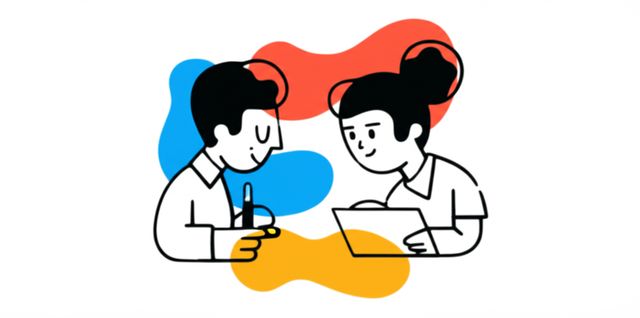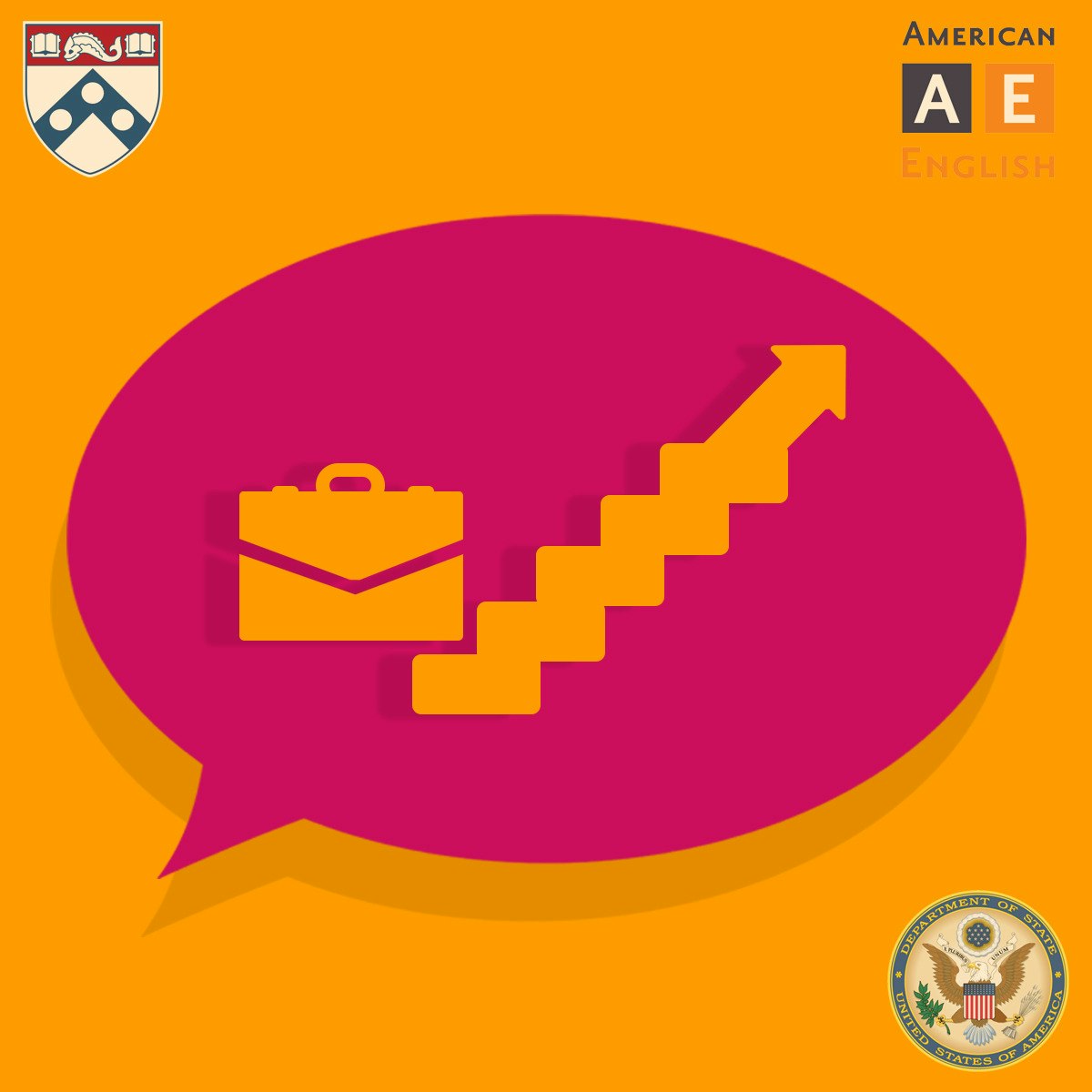Career Development Specialist
A Comprehensive Guide to Becoming a Career Development Specialist
A Career Development Specialist is a professional dedicated to guiding individuals through their career journeys, helping them make informed decisions about their education, training, and employment paths. These specialists work with a diverse range of people, from students exploring initial career options to seasoned professionals considering a career change or seeking advancement. They provide support in identifying career goals, developing necessary skills, and navigating the complexities of the job market. Essentially, they empower individuals to achieve their professional aspirations and find fulfilling work.
The role of a Career Development Specialist can be quite dynamic and rewarding. Imagine helping someone discover a passion they never knew they could turn into a career, or guiding a discouraged job seeker to find a role that truly fits their abilities and ambitions. Specialists often engage in activities like administering and interpreting career assessments, conducting mock interviews, helping craft compelling resumes, and providing insights into various industries and occupations. The satisfaction comes from seeing individuals gain clarity, confidence, and ultimately, success in their working lives.
Introduction to Career Development Specialist
This section will delve deeper into what it means to be a Career Development Specialist. We will explore the nuanced roles these professionals play and underscore their increasing importance in a rapidly evolving world of work. Understanding this profession is the first step for anyone considering this rewarding path or seeking to benefit from such services.
Defining the Role: What Does a Career Development Specialist Do?
A Career Development Specialist is an expert who assists individuals in planning and managing their careers. This involves a wide array of activities, from helping clients understand their own strengths, interests, and values to providing them with the tools and knowledge to explore suitable career options. They are adept at interpreting labor market information and trends, helping individuals align their aspirations with realistic opportunities.
These specialists often work in various settings, including educational institutions (high schools, colleges, universities), government agencies, non-profit organizations, corporate human resources departments, and private practice. Their core function is to empower clients to make strategic career choices, develop effective job search strategies, and achieve long-term career satisfaction and growth. This could involve one-on-one counseling, group workshops, or developing career-related programs and resources.
The scope of their work can also include outplacement services for employees affected by layoffs, career coaching for executives, and guidance for individuals re-entering the workforce after a break. They are facilitators of career self-discovery and action planning, equipping people with the skills to navigate their professional lives proactively and successfully.
For those looking to understand the foundations of career planning and how to initiate their journey towards employment, some online courses offer structured guidance. These can be particularly helpful for individuals at the beginning of their career exploration or those looking to refine their job search skills.
Key Responsibilities Across Different Sectors
In educational settings, such as universities or colleges, Career Development Specialists, often called Career Counselors, assist students with choosing majors, exploring career paths related to their studies, finding internships, and preparing for job applications and interviews. They might develop and deliver workshops on resume writing, networking, and interview skills, and organize career fairs to connect students with potential employers. Their goal is to ensure students are well-prepared for the transition from education to the workforce.
Within corporate environments, a Career Development Specialist might work in Human Resources, focusing on internal employee development. Responsibilities could include designing and implementing career progression plans, identifying training needs, coaching employees for leadership roles, and facilitating internal mobility. They play a crucial role in employee retention and talent management by helping staff see a future within the organization.
In government or non-profit agencies, specialists often support specific populations, such as unemployed individuals, veterans, people with disabilities, or youth. They might provide job search assistance, vocational training referrals, and support in overcoming barriers to employment. Their work is vital in promoting economic self-sufficiency and community well-being. Private practitioners, on the other hand, offer personalized coaching and guidance to individual clients on a fee-for-service basis, covering all aspects of career management.
The Growing Importance in Today's Workforce
The modern workforce is characterized by rapid change, driven by technological advancements, globalization, and evolving economic landscapes. Lifelong learning and career adaptability are no longer just buzzwords but necessities for professional survival and growth. In this context, Career Development Specialists play an increasingly critical role in helping individuals navigate these complexities. They assist people in understanding how global trends impact their chosen fields and what skills are needed to remain competitive.
Furthermore, there's a growing recognition of the importance of individual fulfillment and well-being in career choices. People are increasingly seeking work that aligns with their values and provides a sense of purpose, not just a paycheck. Career Development Specialists help individuals explore these deeper motivations and integrate them into their career planning. This focus on holistic career development contributes to a more engaged, productive, and satisfied workforce.
As organizations also realize the benefits of investing in their employees' growth, the demand for skilled career development professionals is likely to continue. They are instrumental in fostering talent, improving employee retention, and building resilient organizations. For anyone considering this field, it offers a chance to make a tangible positive impact on individuals' lives and the broader workforce. Exploring resources on Career Development can provide a broader understanding of this dynamic field.
Core Skills and Competencies
To excel as a Career Development Specialist, a unique blend of interpersonal abilities, technical knowledge, and cultural awareness is required. These professionals must be adept at connecting with diverse individuals on a personal level while also leveraging specific tools and data to provide effective guidance. This section explores the fundamental skills and competencies that underpin success in this field.
Essential Soft Skills for Effective Guidance
At the heart of a Career Development Specialist's work are strong soft skills. Active listening is paramount; specialists must be able to truly hear and understand a client's concerns, aspirations, and underlying motivations without judgment. This is often coupled with empathy, the ability to understand and share the feelings of another, which helps in building trust and rapport – a cornerstone of any effective counseling relationship.
Communication skills, both verbal and written, are also critical. Specialists need to articulate complex information clearly and concisely, whether they are explaining assessment results, providing feedback on a resume, or presenting a workshop. Patience and encouragement are vital, especially when working with clients who may be feeling uncertain, frustrated, or overwhelmed by their career challenges. Problem-solving and critical thinking skills enable specialists to help clients analyze their situations and develop actionable strategies.
Moreover, strong organizational skills are necessary to manage client caseloads, appointments, and resources effectively. The ability to motivate and inspire clients to take action and persevere through setbacks is another key interpersonal asset that distinguishes effective career development professionals.
These foundational interpersonal skills are often transferable and can be honed through various experiences. Courses focusing on communication and personal development can be a good starting point.
Technical Proficiency: Tools and Techniques
Beyond interpersonal skills, Career Development Specialists need proficiency with a range of technical tools and methodologies. This includes familiarity with various career assessment instruments, such as interest inventories (e.g., Strong Interest Inventory, Myers-Briggs Type Indicator - MBTI), skills assessments, and values clarification exercises. Knowing how to administer, interpret, and ethically use the results of these assessments is crucial for helping clients gain self-insight.
Data analysis skills are increasingly important. Specialists should be comfortable researching and interpreting labor market information, industry trends, salary data, and educational requirements for various occupations. Proficiency in using online career resources, job boards, and professional networking platforms like LinkedIn is also standard. Some specialists may use client relationship management (CRM) software to manage their interactions and track client progress.
Knowledge of career development theories and counseling techniques provides a framework for their practice. This theoretical underpinning helps them understand the stages of career development, decision-making processes, and factors influencing career choices. Familiarity with resume and cover letter writing standards, interview techniques, and job search strategies are also core technical competencies.
For those looking to enhance their technical toolkit, several online courses focus on specific aspects like resume writing and LinkedIn profile optimization.
Developing a strong resume is a critical step in any job search. Books dedicated to this topic can provide in-depth strategies and examples.
Cultural Competency and Adaptability in Diverse Settings
Career Development Specialists work with individuals from a vast array of backgrounds, cultures, experiences, and identities. Therefore, cultural competency is not just a desirable skill but an ethical imperative. This involves an awareness of one's own cultural biases and assumptions, a respect for and understanding of different cultural perspectives on work and career, and the ability to adapt counseling approaches accordingly.
Adaptability is also key. The world of work is constantly changing, and so are the needs of clients. Specialists must be lifelong learners, staying updated on new career trends, emerging industries, technological advancements, and evolving best practices in career counseling. They need to be flexible in their methods and able to tailor their support to the unique circumstances of each individual, whether they are working with a recent graduate, a mid-career professional, an immigrant, or someone with a disability.
This adaptability extends to understanding the diverse settings in which they might work. The approach used in a university career center might differ significantly from that in a corporate HR department or a community-based organization serving marginalized populations. Being able to navigate these different contexts effectively is a hallmark of a skilled specialist.
Formal Education Pathways
Embarking on a career as a Career Development Specialist typically involves specific educational pursuits. While passion and relevant experience are valuable, a formal academic background often provides the necessary theoretical knowledge and practical skills. This section outlines the common educational routes, from undergraduate studies to specialized graduate programs and certifications, that can pave the way to this profession.
Relevant Undergraduate Degrees to Build a Foundation
Several undergraduate degrees can provide a solid foundation for a career in career development. Psychology is a popular choice, as it offers insights into human behavior, motivation, assessment, and counseling theories. Students in psychology programs often develop strong research and analytical skills, which are beneficial for understanding labor market trends and interpreting career assessments.
Human Resources (HR) is another relevant field. An HR degree can equip individuals with knowledge of organizational behavior, talent management, recruitment, and employment law, which are particularly useful for specialists working within corporate settings or focusing on employer relations. Sociology and Social Work degrees can also be advantageous, offering perspectives on societal structures, diverse populations, and social justice issues that intersect with career development, especially for those wishing to work in non-profit or community-based roles.
Degrees in Education or Counseling also provide direct pathways. These programs often include coursework in counseling skills, educational psychology, and human development. Regardless of the specific major, coursework in communications, ethics, and statistics can further strengthen one's preparation for this field. A strong grounding in Psychology can be particularly beneficial.
Graduate Programs and Specialized Certifications
For many roles, particularly those involving direct counseling or more senior responsibilities, a master's degree is often preferred or required. Common graduate degrees include Master's in Counseling (with a specialization in Career Counseling or School Counseling), Master's in Higher Education Administration (with a focus on student affairs or career services), or a Master's in Human Resource Management.
These graduate programs typically offer advanced coursework in career development theory, counseling techniques, assessment administration and interpretation, program development, ethics, and multicultural counseling. Many programs also include a practicum or internship component, providing invaluable hands-on experience under supervision. This practical training is crucial for developing confidence and competence as a practitioner.
Beyond a master's degree, various certifications can enhance a specialist's credentials and demonstrate a commitment to the profession. Organizations like the National Career Development Association (NCDA) and the Center for Credentialing & Education (CCE) offer well-recognized credentials, such as the Certified Career Counselor (CCC), Certified Master of Career Services (CMCS), and Global Career Development Facilitator (GCDF). These often require a combination of education, supervised experience, and passing an examination.
Specialized books can offer deep dives into career development theories and interventions, supporting both graduate-level study and ongoing professional learning.
Understanding Accreditation and Licensing Requirements
Accreditation and licensing requirements for Career Development Specialists can vary significantly depending on the specific role, work setting, and geographic location (state or country). For individuals who identify primarily as "counselors" and provide mental health or in-depth personal counseling as part of their career services, state licensure as a Professional Counselor (LPC) or similar credential may be necessary. These licenses typically require a specific master's degree in counseling from an accredited institution (e.g., CACREP accredited), supervised postgraduate experience, and passing a state-recognized examination.
However, not all Career Development Specialist roles require state licensure. Many positions, especially in higher education career services, corporate HR, or coaching, may prioritize specific career development certifications (like GCDF or NCDA credentials) and relevant experience over state counseling licensure. It is crucial for aspiring specialists to research the specific requirements for the types of roles and settings they are interested in.
Professional organizations often provide guidance on ethical standards and best practices, even if formal licensing isn't mandated for a particular role. Adherence to these standards is vital for maintaining professionalism and client trust. Staying informed about the evolving credentialing landscape is an ongoing responsibility for practitioners in the field. For those particularly interested in the intersection of education and career planning, Education courses can provide additional context.
Online Learning and Certifications
In today's digital age, online learning has become a highly accessible and flexible pathway for acquiring new skills and credentials. For aspiring and practicing Career Development Specialists, a wealth of online courses and certifications can supplement formal education, facilitate career pivots, or provide specialized knowledge. This section explores how digital learning platforms can be leveraged for professional growth in this field.
Key Certifications Accessible Through Online Study
Several globally recognized career development certifications have components that can be completed or prepared for through online study. For example, the Global Career Development Facilitator (GCDF) credential, offered by the Center for Credentialing & Education (CCE), has training programs available in hybrid or fully online formats from various approved providers. These programs cover core competencies in career development, assessment, and helping skills.
Similarly, organizations like the National Career Development Association (NCDA) provide a range of professional development opportunities, including webinars and online courses that can contribute towards their certifications or offer continuing education units. While some certifications may still require in-person elements or supervised experience, online coursework can often fulfill significant portions of the educational requirements, making them more accessible to a wider audience.
It's important to research the specific requirements and recognition of any online certification. Reputable certifications are usually backed by established professional bodies and are recognized within the industry. These credentials can enhance your resume, demonstrate specialized knowledge, and open doors to certain employment opportunities. Many individuals explore options related to career coaching certification online to bolster their expertise.
Leveraging Online Platforms for Career Development Courses
Online learning platforms like Coursera, Udemy, edX, and LinkedIn Learning offer a vast array of courses relevant to career development. These can range from short, skill-specific modules (e.g., resume writing, interview skills, LinkedIn optimization) to more comprehensive programs covering aspects of counseling, human resources, or coaching. OpenCourser itself is an excellent resource to easily browse through thousands of courses, allowing learners to compare options and find programs that fit their specific learning goals and budget.
These courses offer flexibility, allowing learners to study at their own pace and often at a lower cost than traditional campus-based programs. They can be particularly beneficial for individuals looking to gain foundational knowledge before committing to a degree program, for professionals seeking to update their skills, or for those transitioning into the career development field from other professions. Many courses offer certificates of completion, which can be valuable additions to a professional profile.
When choosing online courses, consider factors like the reputation of the institution or instructor, course content and reviews, and whether the skills taught align with your career goals. Look for courses that offer practical exercises, case studies, or opportunities for interaction to enhance the learning experience.
Several online courses focus directly on career development skills and strategies, providing structured learning paths for individuals looking to advance their own careers or to help others do so.
For those seeking to build a comprehensive understanding of career development, there are books that serve as excellent guides. These texts often cover a wide range of topics from self-assessment to navigating the job market.
Integrating Digital Learning with Practical Experience
While online courses and certifications provide valuable knowledge and credentials, practical experience remains crucial in the field of career development. The most effective learning often happens when digital coursework is combined with real-world application. Seek opportunities to volunteer, intern, or take on entry-level roles where you can apply the skills and concepts learned online.
For instance, after completing an online course on resume writing, offer to help friends or colleagues update their resumes. If you've learned about career assessment tools, explore opportunities to shadow a practicing specialist or assist in a career services office. This hands-on experience will not only solidify your learning but also provide tangible examples to discuss in job interviews and build your professional network.
Consider creating a portfolio of your work, which might include sample resumes you've critiqued (with permission and anonymized), career action plans you've helped develop, or presentations you've created based on your online learning. This proactive approach to integrating digital learning with practical application will significantly enhance your preparedness and marketability as a Career Development Specialist. OpenCourser's Learner's Guide offers tips on how to maximize the benefits of online learning, including how to structure your self-study and apply your new knowledge.
Career Progression for Career Development Specialists
A career as a Career Development Specialist offers various pathways for growth and advancement. Starting from entry-level positions, professionals can move into roles with greater responsibility, specialization, or leadership. Understanding this trajectory can help aspiring and current specialists plan their long-term career development and identify opportunities for advancement.
Typical Entry-Level Roles and How to Secure Them
Entry-level positions in career development often serve as a launchpad into the field, providing foundational experience. Common roles include Career Services Assistant, HR Assistant with a focus on training or recruitment, Junior Career Advisor, or Intake Coordinator at a workforce development agency. These positions might involve administrative support, assisting senior specialists, coordinating workshops, providing basic information to clients, or managing resources. For instance, a Human Resources Assistant role can offer exposure to broader HR functions while allowing for a focus on employee career paths.
To secure these roles, a relevant bachelor's degree (e.g., psychology, HR, education, sociology) is often required. Internships or volunteer experience in career services, counseling, or human resources can significantly strengthen an application. Demonstrating strong communication, organizational, and interpersonal skills, along with a genuine interest in helping others with their careers, is crucial. Networking with professionals in the field and tailoring your resume and cover letter to highlight relevant skills and experiences are also key strategies.
Online job boards, university career centers, and professional association websites are good places to find these entry-level opportunities. Being proactive, persistent, and showcasing your passion for career development will make you a more competitive candidate.
Some courses can help you prepare for the job search process itself, covering everything from resume building to interview skills.
Advancing to Mid-Career and Senior Positions
With experience, ongoing professional development, and possibly advanced education (like a master's degree or certifications), Career Development Specialists can advance to mid-career and senior roles. These positions often involve more complex client cases, program management, supervision of junior staff, or specialized areas of practice. Examples include Senior Career Counselor/Coach, Career Services Coordinator, Assistant Director of Career Services, or Corporate Career Development Manager.
In these roles, responsibilities might expand to include designing and evaluating career programs, developing employer relationships, conducting advanced assessments, providing specialized coaching (e.g., executive coaching, outplacement services), and contributing to strategic planning. Strong leadership, project management, and analytical skills become increasingly important at this stage. Obtaining credentials such as Certified Career Counselor or Global Career Development Facilitator can also facilitate advancement.
Networking within professional organizations, presenting at conferences, and publishing articles can raise one's profile and open doors to more senior opportunities. Demonstrating a track record of successful client outcomes and program initiatives is key to progressing. Those interested in leadership might look for opportunities to mentor junior staff or lead specific projects to gain relevant experience.
Books on career strategy and achieving professional goals can be invaluable for those looking to move up the ladder.
Leadership Opportunities: Directing Career Services and Strategy
At the highest levels, Career Development Specialists can move into leadership roles such as Director of Career Services (in educational or non-profit settings), Director of Talent Development (in corporations), or establish their own successful private practices or consulting firms. These positions involve significant strategic oversight, budget management, staff leadership, policy development, and representing the organization or department to external stakeholders.
Leaders in career development are often responsible for setting the vision and direction for career-related initiatives, ensuring alignment with broader organizational goals. They may lead large teams, secure funding, build strategic partnerships, and stay at the forefront of innovation in career services delivery. A strong understanding of organizational dynamics, financial acumen, and exceptional leadership and communication skills are essential for these roles.
Pursuing doctoral studies in counseling, higher education, or a related field can sometimes be a pathway to top leadership positions, particularly in academic settings. However, extensive experience, a proven track record of success, and strong leadership qualities are often the primary determinants. These leaders play a crucial role in shaping the future of career development services and advocating for the importance of career well-being. OpenCourser offers pathways to explore Management courses that could be relevant for such leadership aspirations.
Industry Trends and Challenges
The field of career development is not static; it is continually shaped by broader societal, technological, and economic shifts. Staying abreast of these trends and understanding the associated challenges is crucial for Career Development Specialists to remain effective and provide relevant guidance. This section will explore some of the key dynamics influencing the profession.
The Influence of AI and Automation on Career Guidance
Artificial Intelligence (AI) and automation are profoundly impacting the labor market, and by extension, the practice of career development. AI-powered tools are emerging that can assist with tasks like resume screening, job matching, and even providing initial career exploration suggestions. While these technologies can offer efficiency and access to vast amounts of data, they also present challenges. Specialists must learn how to leverage these tools effectively while also addressing their limitations, such as potential biases in algorithms or the lack of human nuance in automated advice.
A significant part of a specialist's role will involve helping clients navigate a job market where many traditional roles are being automated, and new roles requiring different skills are emerging. This means guiding individuals towards upskilling and reskilling, particularly in areas that complement AI, such as critical thinking, creativity, emotional intelligence, and complex problem-solving. The McKinsey Global Institute's report on the future of work highlights that automation trends accelerated by the pandemic may require a larger share of the workforce to switch occupations and upgrade skills.
Career Development Specialists will also need to counsel clients on how to work alongside AI and automated systems in their future jobs. This involves not just technical adaptation but also a mindset shift towards lifelong learning and flexibility. The human element of career counseling – empathy, personalized guidance, and motivational support – will likely become even more valuable as routine tasks are automated.
Navigating Workforce Diversity, Equity, and Inclusion
Promoting diversity, equity, and inclusion (DEI) in the workforce is a critical societal goal and a key consideration for Career Development Specialists. They have a responsibility to understand the unique career challenges and opportunities faced by individuals from diverse backgrounds, including differences in race, ethnicity, gender, sexual orientation, socioeconomic status, age, and disability. This requires a commitment to cultural competency and an awareness of systemic barriers that can impede career progression for certain groups.
Specialists must actively work to provide equitable guidance, ensuring that their advice and the resources they recommend are inclusive and accessible. This might involve helping clients navigate discriminatory practices, advocating for fair hiring processes, and connecting individuals with targeted support networks and mentorship opportunities. They also play a role in educating employers about the benefits of a diverse workforce and inclusive workplace cultures.
The conversation around DEI is constantly evolving, and specialists must engage in ongoing learning to stay informed about best practices and emerging issues. This includes understanding the concept of intersectionality – how various aspects of an individual's identity can combine to create unique experiences of discrimination or privilege.
The Rise of Remote Work and Its Impact on Global Talent Mobility
The COVID-19 pandemic significantly accelerated the adoption of remote work, and this trend is expected to persist, reshaping where and how people work. This shift presents both opportunities and challenges for career development. On one hand, remote work can expand geographic access to jobs, allowing individuals to apply for positions outside their local area and enabling companies to tap into a global talent pool. This increases flexibility and can improve work-life balance for some.
On the other hand, the rise of remote work also brings new considerations. Career Development Specialists need to help clients develop skills for remote work environments, such as digital communication, time management, and virtual collaboration. They also need to address potential downsides, like social isolation, challenges in building workplace relationships, and the "always-on" culture that can blur work-life boundaries. The U.S. Bureau of Labor Statistics notes that overall employment for school and career counselors and advisors is projected to grow, and the changing nature of work, including remote options, will influence the types of guidance needed.
Global talent mobility, facilitated by remote work and other factors, means that individuals may increasingly compete in a global job market and consider international career opportunities. Specialists can help clients understand the implications of this, including cultural differences in work practices, visa requirements, and the skills needed to succeed in an international context.
Ethical and Professional Standards
The practice of career development is built on a foundation of trust and professionalism. Career Development Specialists are often privy to sensitive personal and professional information, and their guidance can significantly impact individuals' lives. Therefore, adherence to strong ethical principles and professional standards is paramount. This section outlines key ethical considerations and the importance of professional conduct.
Ensuring Confidentiality and Building Client Trust
Confidentiality is a cornerstone of the client-specialist relationship. Clients share their aspirations, fears, and personal circumstances with the expectation that this information will be kept private. Specialists have an ethical obligation to protect client confidentiality, disclosing information only with informed consent or when legally required (e.g., to prevent harm to the client or others). Clear communication about the limits of confidentiality should occur at the outset of the relationship.
Building trust goes hand-in-hand with confidentiality. This involves creating a safe, non-judgmental space where clients feel comfortable being open and honest. Trust is fostered through consistent professionalism, reliability, active listening, empathy, and genuinely acting in the client's best interest. When clients trust their specialist, they are more likely to engage fully in the career development process and achieve positive outcomes.
Maintaining appropriate boundaries is also crucial for a trusting relationship. Specialists must avoid dual relationships that could impair their objectivity or exploit the client. Their focus should always remain on the client's career development needs.
Strategies for Mitigating Bias in Counseling
Career Development Specialists, like all individuals, can hold unconscious biases related to age, gender, race, ethnicity, socioeconomic status, disability, or other characteristics. These biases, if unchecked, can influence the advice given, the opportunities suggested, and the overall quality of support provided. It is an ethical imperative for specialists to engage in ongoing self-reflection and education to identify and mitigate their own biases.
Strategies for mitigating bias include seeking diverse perspectives, using objective data to inform recommendations (while still personalizing advice), and being mindful of language and assumptions. Employing culturally sensitive assessment tools and counseling approaches is also essential. Actively challenging stereotypes and advocating for equitable opportunities for all clients are key components of bias-free practice.
Supervision and peer consultation can be valuable resources for specialists to process challenging cases and receive feedback on their approach, helping to identify potential blind spots. Committing to fairness and equity ensures that all clients receive the best possible support in achieving their career goals. Exploring Social Sciences can offer broader perspectives on societal biases and structures.
Adherence to Professional Codes of Conduct
Most recognized professions have codes of conduct or ethical guidelines, and career development is no exception. Organizations like the National Career Development Association (NCDA), the American Counseling Association (ACA), and other national or international bodies provide codes of ethics that outline the principles and standards for professional practice. These codes typically cover areas such as competence, integrity, client welfare, confidentiality, professional responsibility, and relationships with other professionals.
Adherence to these codes is crucial for maintaining the integrity of the profession and protecting clients. Specialists are expected to practice within their areas of competence, engage in ongoing professional development to maintain and enhance their skills, and accurately represent their qualifications and services. They must also avoid conflicts of interest and ensure that their actions are guided by the best interests of their clients.
Familiarity with the relevant professional codes of conduct and applying them in daily practice is a hallmark of a responsible Career Development Specialist. These codes provide a framework for ethical decision-making when faced with complex situations or dilemmas. Many professional organizations offer resources and training on ethical practice to support their members.
Understanding these ethical frameworks is often a component of formal training. Some books specifically address professional ethics in counseling and related fields.
Global Opportunities and Cultural Competence
As the world becomes increasingly interconnected, the field of career development is also taking on a more global dimension. Professionals may find opportunities to work with diverse populations internationally or support clients navigating global career paths. This requires a high degree of cultural competence and an understanding of the nuances of different labor markets.
Demand for Career Development Specialists in Global Markets
The need for career guidance is universal, and as economies develop and workforce needs evolve globally, the demand for skilled Career Development Specialists is emerging in various regions. In many developing countries, there's a growing focus on human capital development and preparing young populations for the future of work. This can create opportunities in educational institutions, government initiatives, and non-governmental organizations focused on youth employment and skills training.
In established economies in regions like Europe and Asia, there's ongoing demand related to workforce transitions, lifelong learning, and talent management within multinational corporations. The rise of international schools and universities also creates a need for career services professionals who can support globally mobile students. Furthermore, the increasing prevalence of remote work means specialists can potentially serve clients across borders, provided they understand the relevant legal and cultural contexts.
Market research and networking within international professional associations can help identify specific regions or sectors with growing demand. Understanding the unique economic drivers and educational systems of different countries is key to tapping into these global opportunities.
The Importance of Cultural Adaptability and Language Skills
Working effectively in a global context, or even within a multicultural domestic setting, hinges on strong cultural adaptability. This means more than just being aware of different customs; it involves the ability to modify communication styles, counseling approaches, and even the interpretation of career assessments to suit diverse cultural backgrounds. What constitutes a "good" career or a "successful" job search can vary significantly across cultures.
Language skills can be a significant asset. While English is often a lingua franca in international business and academia, proficiency in other languages can open up more opportunities and allow for deeper, more nuanced connections with clients from different linguistic backgrounds. Even a basic understanding of a client's native language can help build rapport and demonstrate respect.
Beyond language, understanding non-verbal communication, societal hierarchies, attitudes towards work-life balance, and family influences on career decisions are all part of cultural adaptability. This often requires ongoing learning, humility, and a willingness to step outside one's own cultural framework.
For those interested in international careers or working with diverse populations, developing these skills is essential. Courses focusing on Languages or intercultural communication can be highly beneficial.
Navigating Certifications and Regulations for International Practice
Practicing as a Career Development Specialist internationally involves navigating a potentially complex web of certifications, regulations, and professional standards that can vary greatly from one country to another. There isn't always a universally recognized credential, although some, like the GCDF, have a broader international presence. Some countries may have their own national certification or licensing bodies for counselors or career advisors.
If considering practice in a specific country, it's crucial to research its requirements thoroughly. This might involve understanding local labor laws, data privacy regulations (like GDPR in Europe), and any specific qualifications needed to work in educational, government, or private sectors. Professional associations within the target country are often the best source of this information.
For those offering services remotely to international clients, understanding the ethical and legal implications, such as data protection and liability across borders, is vital. Seeking legal counsel or consulting with experienced international practitioners can be advisable. Building a professional network with colleagues in different countries can also provide valuable insights and support in navigating these complexities.
Frequently Asked Questions (FAQs)
This section addresses some common questions individuals may have about pursuing a career as a Career Development Specialist or engaging their services. These concise answers aim to provide quick clarity on key aspects of the profession.
What is the typical salary range for a Career Development Specialist?
Salary ranges for Career Development Specialists can vary widely based on factors such as geographic location, level of education, years of experience, certifications held, the type of employer (e.g., non-profit, government, private university, corporation), and specific job responsibilities. According to the U.S. Bureau of Labor Statistics (BLS), the median annual wage for school and career counselors and advisors was $61,710 in May 2023. Entry-level positions will typically be lower, while senior or specialized roles, particularly in the private sector or consulting, can command significantly higher salaries. It's advisable to research salary data specific to your region and target sector.
Which certifications are most valued in this field?
The value of a certification often depends on the specific role and industry. For general career development practice, credentials like the Global Career Development Facilitator (GCDF) and those offered by the National Career Development Association (NCDA), such as Certified Career Counselor (CCC) or Certified Master of Career Services (CMCS), are widely recognized in the United States. For those in counseling roles, state licensure (e.g., LPC) is often critical. In corporate settings, HR certifications (like SHRM-CP or PHR) might be valued if the role is within an HR department. It's beneficial to research which certifications are most relevant to your desired career path and geographic location.
How does a Career Development Specialist differ from a Life Coach or general Career Coach?
While there can be overlap, there are distinctions. A Career Development Specialist often has a more formal background in career development theories, assessment tools, labor market information, and counseling techniques, frequently holding relevant degrees or specific career counseling certifications. Their focus is specifically on education, career exploration, job searching, and workplace navigation. A Career Coach may also focus on these areas but the term is broader and less regulated; coaching approaches and qualifications can vary widely. Life Coaches have an even broader scope, addressing various life domains like relationships, personal growth, and well-being, not solely focused on career. Career Development Specialists often work within structured settings like universities or government agencies, though many are also in private practice, similar to coaches.
What types of industries hire the most Career Development Specialists?
Career Development Specialists are employed across a diverse range of industries. Educational institutions, including K-12 schools, colleges, and universities, are major employers, hiring specialists for their career services departments. Government agencies (e.g., workforce development centers, vocational rehabilitation services) also employ a significant number. Non-profit organizations focused on employment assistance, youth development, or specific populations (like veterans or immigrants) are another key sector. Increasingly, corporations are hiring career development professionals within their HR or talent development teams to support employee growth and retention. Private practice and consulting offer entrepreneurial opportunities as well.
Is it possible to work as a Career Development Specialist remotely?
Yes, remote work is increasingly common for Career Development Specialists, a trend accelerated by the pandemic. Many aspects of the role, such as one-on-one counseling sessions, resume reviews, and even some workshops, can be effectively delivered online using video conferencing and other digital tools. This allows specialists to work with clients from different geographic locations and can offer greater flexibility. However, some roles, particularly those in traditional educational settings or requiring in-person group facilitation, may still require an on-site presence or a hybrid model. The viability of remote work often depends on the employer and the specific client base being served.
What are some common challenges faced in this career?
Common challenges in this career can include managing large caseloads, dealing with clients who may be resistant to change or facing significant barriers to employment, and the emotional toll of supporting individuals through stressful career transitions. Staying current with rapidly evolving labor market trends, new technologies, and diverse client needs requires continuous learning. Budget constraints in non-profit or public sectors can sometimes limit resources. For those in private practice, building a client base and managing the business aspects can be challenging. Despite these challenges, the profound satisfaction of helping individuals achieve their career goals often outweighs these difficulties.
Embarking on a path as a Career Development Specialist is a commitment to empowering others and navigating the ever-changing landscape of work. It is a field that demands continuous learning, empathy, and a genuine desire to see individuals thrive. For those drawn to this work, the journey, while potentially rigorous, offers the profound reward of making a tangible, positive difference in people's lives. With the right skills, education, and dedication, you can help shape brighter professional futures. Remember to explore resources like OpenCourser to find courses and books that can support your learning and professional development in this dynamic field.












